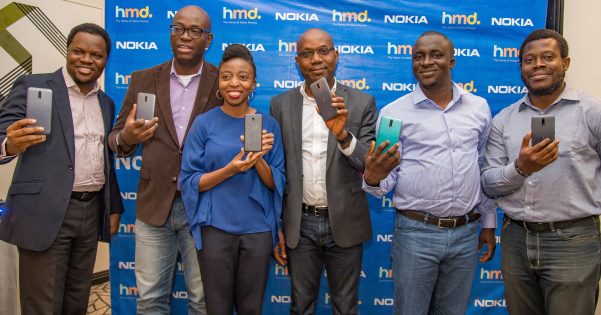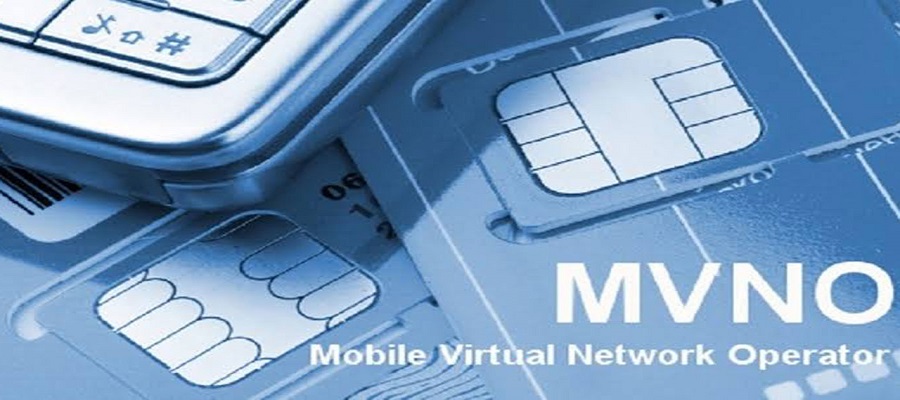Telecom
Next Generation Nokia 2.3 Brings Powerful AI to Nigerians

HMD Global, the home of Nokia phones, has announced the Nokia 2.3. Delivering a feature-packed camera fuelled by AI, helping you get the best shot, the Nokia 2.3 also features a large 6.2” HD+ screen and two-day battery life for long-lasting and immersive entertainment. Plus, being Android™ 10 ready, the new Nokia 2.3 will receive guaranteed monthly security updates for three years and OS updates for two years, ensuring this smartphone gets better over time.
The Nokia 2.3 features a dual camera and comes with ‘Recommended Shot’, a brand-new Nokia phones feature helping you choose the best picture. Whether it’s the mid-air backflip, the family portrait where everyone is actually smiling or the winning goal, ‘Recommended Shot’ automatically captures alternate images before and after the shutter button is pressed and suggests the best one.
Alongside even more AI-powered features such as ‘Portrait Mode’ and low-light imaging, fans can capture creative images in a variety of settings.
Save precious time with the Nokia 2.3, which has a dedicated Google Assistant Button. Just use your voice to view upcoming calendar entries, commute times and other info. The Nokia 2.3 also comes with biometric face recognition, allowing you to unlock your phone at a glance.
Joseph Umunakwe, General Manager, West, East and Central Africa, HMD Global, said: “Consumers world over have really appreciated the Nokia 2 family of products. The Nokia 2.3 is a step forward in our promise of offering you an experience that stays fresh longer – giving consumers access to two years of OS upgrades and three years of monthly security updates even in the affordable price tier. On top, it offers industry leading AI for this segment, large screen and our signature promise of two-day battery life – making it the ideal pick for those who rely on their smartphone as their primary screen.” “
Bringing out your creative side
The Nokia 2.3 comes equipped with ‘Portrait Mode’, elevating your subject and subtly blurring the background, resulting in stunning portraits that pop. Simply use Google Photos to adjust the blur after you take the shot. With a 13MP/2MP dual camera, fans can take unique portraits with a variety of exclusive bokeh – or blurred background effects such as Classic, Butterfly, Heart or Star-shaped styles. And feel like a professional by creating eye-catching photos by simply adjusting the focus when editing.
This device also combines advanced image fusion and exposure stacking (taking numerous photos in various lighting settings and blending them together), meaning you can shoot stellar images in vibrant detail, even in low-light conditions.
Long-lasting, immersive entertainment
Power through your day with the Nokia 2.3’s two-day battery life courtesy of AI-assisted Adaptive Battery technology. The device will learn your app usage habits meaning you can use your device for longer and get lost in your favourite series and movies. Sit back, relax and enjoy a large 6.2” HD+ screen from the palm of your hands, bringing your favourite stories to life.
Elegant design with everyday essentials
Inspired by its Nordic design heritage, the Nokia 2.3 delivers a timeless aesthetic that isn’t just built to look good, but to last. Featuring a 3D nano-textured cover that sits securely in your hand, this phone has a stunning finish that’s sure to leave a lasting impression. Advanced structural engineering made it possible to integrate the dual camera and flash into the rear of the phone without a camera bump. Inner high-precision diecast aluminium chassis makes the structure solid and rigid protecting all the components inside.
An experience that just keeps getting better
The Nokia 2.3 comes Android 10 ready, meaning guaranteed monthly security updates for three years and OS updates for two years to ensure the smartphone will get better over time and that the investment is future-proofed. The latest features of Android 10 will also give fans access to dark theme to save on power usage and improve visibility, as well as enhanced privacy and more, once updated.
Telecom
Lebara Nigeria, MVNO Oils Machine for Q3 Launch with Personalized Number Reservations

Lebara Nigeria is building excitement for its upcoming Mobile Virtual Network Operator (MVNO) launch, giving customers a chance to secure a personalized piece of their mobile identity.

The company has opened a Number Reservation Portal, allowing users to reserve their preferred mobile numbers before the official service goes live in the third quarter of 2025.
This strategic move is all about giving customers a sense of ownership from day one. Using the carrier’s 0724 prefix, users can choose a number that’s meaningful to them, whether it’s a birthday, a lucky number, or an easy-to-remember pattern.
The reservation process is straightforward. Users must be at least 13 years old and provide a few basic details to get a one-time password via email.
Once verified, they’ll need to enter their National Identification Number (NIN), which the system uses to confirm personal information.
After this, a list of available numbers appears, and a final confirmation email completes the reservation.
Lebara, a London-based global MVNO, according to yozzo.com, is no stranger to the telecom world, with a strong presence as a mobile virtual network operator (MVNO) across Europe and other regions.
Its entry into Nigeria is a calculated move to carve out a space in the highly competitive market.
By allowing customers to pick their numbers early, Lebara hopes to build loyalty and highlight its customer-first philosophy.
The company plans to operate a lean, technology-driven model by leveraging existing network infrastructure, which will help keep costs low and make its pricing competitive.
At launch, Lebara will offer nationwide coverage, a dedicated 0724 number series, and both SIM and eSIM options.
Beyond traditional connectivity, Lebara is also partnering with local government and the Ministry of Arts, Culture, Tourism, and Creative Economy to launch public Wi-Fi hubs and promote digital inclusion for creators and underserved communities.
The core of its proposition is affordability, transparent billing, and a strong customer service model designed to challenge established players.
Lebara’s entry won’t be without its challenges.
It will face off against many other competitors in Nigeria’s emerging MVNO space.
This wave of new entrants comes after the Nigerian Communications Commission (NCC) issued 46 MVNO licenses, with many of the licensees expected to have already launched.
Despite this, the local media’s focus has largely been on only a couple of them, Vitel and now Lebara.
Telecom
Why Half of MVNOs in Nigeria May Collapse- Experts

Telecoms stakeholders have cautioned that many Mobile Virtual Network Operators (MVNOs) in Nigeria could struggle to survive unless they address infrastructure gaps, target niche markets, and adapt to local realities.

The warning came during the sixth edition of the Telecoms Sector Sustainability Forum, organised by Business Remarks in Lagos on Tuesday.
According to the stakeholders, securing a license from the Nigerian Communications Commission (NCC) is not enough to ensure survival in a market dominated by major Mobile Network Operators (MNOs) like MTN, Airtel, and Glo.
Chidi Ajuzie, director of USK Mobile, highlighted the stark reality facing MVNOs, noting that none of the over 40 licensed operators have fully launched services.
“Licenses are not cash cows. Too many people think that once you get a license, the money will start rolling in. The truth is, you must build infrastructure, study the market, and create services that meet consumer needs. Without that, many MVNOs will die out quickly,” Ajuzie said.
Ajuzie pointed out that smaller operators, particularly those in Tier 4 and Tier 5 categories, face significant financial hurdles in building their own infrastructure to support capacity.
However, he sees this as an opportunity for innovation, urging MVNOs to target niche markets such as youth, migrant workers, or fintech services, as seen in successful models in South Africa and India.
“Half of us may launch, but only those with clear strategies will survive,” he warned, predicting mergers and consolidations in the coming years.
Tony Emoekpere, president of the Association of Telecommunications Companies of Nigeria (ATCON), echoed Ajuzie’s concerns, stressing that market differentiation is critical for MVNO survival.
“The MNOs already provide enterprise services, internet, and fintech. MVNOs must find gaps and focus on those,” Emoekpere said.
He cited Kenya’s M-Pesa, which revolutionized payments by targeting rural and low-income users, as a model for local innovation.
Emoekpere suggested that MVNOs could capitalize on Nigeria’s underserved rural areas, where millions lack access to reliable telecom and financial services. “Something as simple as a low-data package for POS machines in rural areas could be a game-changer,” he added.
Olusola Teniola, director, IPNX, cautioned against adopting foreign business models without considering Nigeria’s unique environment. “In some villages, people still travel by canoe or horse for hours to access basic services. If your business model doesn’t account for that, it will fail,” Teniola said.
He urged MVNOs to focus on the bottom of the pyramid, where millions lack basic connectivity, rather than competing for urban smartphone users.
Teniola also warned that failure to strengthen indigenous companies could lead to more profits leaving Nigeria through foreign-owned operators, emphasizing the need for policies to protect data sovereignty and foster local innovation.
The stakeholders said while MVNOs have the potential to expand Nigeria’s telecom sector and increase consumer choice, their survival hinges on strategic planning, niche targeting, and a focus on rural connectivity.
Without urgent action to address infrastructure challenges and adapt to local needs, many MVNOs risk disappearing before they can establish a foothold in Nigeria’s competitive telecom landscape.
Telecom
NCC Claims Nigeria’s Telecom Tariffs among Cheapest despite 50 Percent Hike

Nigerian Communications Commission (NCC) has defended the recent upward review of telecom tariffs, insisting that Nigeria’s rates remain among the cheapest in the world due to strong industry competition.

Speaking at a media briefing in Abuja recently, Dr. Aminu Maida, executive vice chairman, NCC, said that despite a 50% hike in tariffs, call rates have only moved from ₦15 per minute in the early 2000s to about ₦18–₦19 per minute today.
“Even with the increase, not all operators adjusted their tariffs. Some are still undercutting others. That is competition at work,” Maida explained.
He assured that the commission will continue to strengthen regulations to encourage competitiveness and transparency.
According to him, NCC is adopting an information disclosure strategy to enable consumers to make informed choices.
Maida also cautioned Nigerians against relying on Truecaller for identity verification, stressing that it is not linked to Nigeria’s SIM registration database and often provides misleading results.
He noted that while all SIMs in use are registered, some individuals deliberately use proxies, including domestic staff, to register SIMs an act he described as a crime.
The NCC boss disclosed that in September, the commission will launch a coverage and tariff map to help subscribers compare network quality and pricing across operators.
He further revealed plans for spectrum trades and leases to optimise usage and improve service delivery, adding that most Nigerian phones already support 4G, which remains the “sweet spot” for mobile broadband.
Maida emphasised the need for fresh capital and stronger corporate governance within the sector to sustain growth, enhance service quality, and strengthen national security.

 E-Financial2 days ago
E-Financial2 days agoFBNQuest Merchant Bank Facilitates Landmark ₦5Bn Commercial Paper Programme for Accion Microfinance Bank

 E-Business2 days ago
E-Business2 days agoNDPC Begins Probe of Banks, Others for Data Breaches

 Telecom2 days ago
Telecom2 days agoDigital Realty Commits to Africa’s Digital Transformation @ Launch of LKK2 Data Center

 E-Financial2 days ago
E-Financial2 days agoUBA to Deepen Financial Inclusion, Boost Savings’ Culture with Super Savers’ Promo

 Telecom2 days ago
Telecom2 days agoIntel–U.S. Partnership Reshapes Semiconductor Landscape with Historic Equity Agreement

 E-Financial2 days ago
E-Financial2 days agoFidelity Bank Resumes Intl Transactions on Naira Debit Cards

 E-Financial2 days ago
E-Financial2 days agoNigeria Leads Africa in Stablecoin Adoption with $22Bn in Transactions

 Telecom2 days ago
Telecom2 days agoNITDA Alerts Nigerians to eSIM Security Flaw Deployed to Hijack Devices Worldwide























